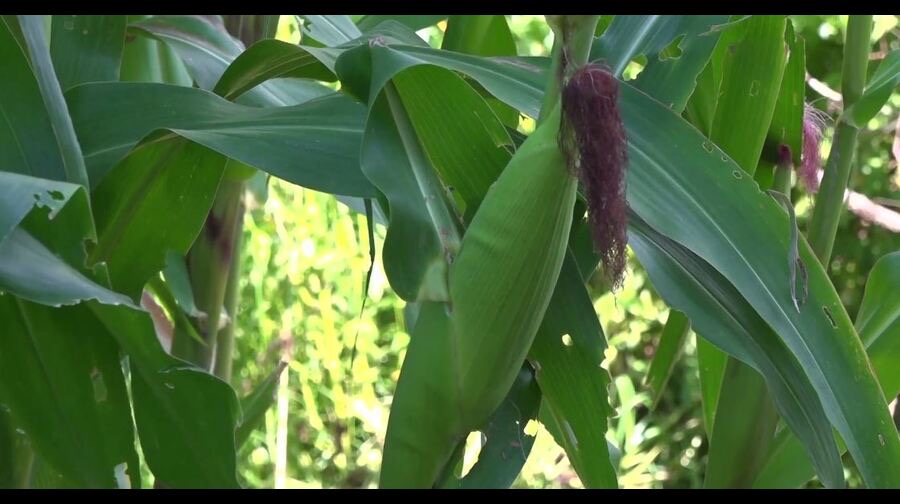
Phangyul farmers in Wangdue Phodrang are now growing maize as an alternative cash crop. Phangyuel Gewog Administration says maize has the potential to become a reliable income source. To date, farmers in the gewog have cultivated maize only on a smaller scale due to the lack of irrigation water. Now, with the Baychhu Irrigation Water Scheme supplying abundant water, some farmers in the gewog have already begun maize cultivation this year to see the viability of mass production.
Under the scorching sun, 55-year-old Karma Tshering in Kumchhi-Phangyuel Chiwog is clearing weeds in his maize field.
Unlike in previous years, his maize plants are offering hopes of a promising venture. Since he does not have a wetland, he cultivates the cereal on his 80-decimal land. In the past, the yield was not as promising due to a lack of irrigation water.
The father of four exchanges his flattened maize with others for rice to meet his family’s daily needs.
Additionally, he cultivates the crop even during the winter season, mostly for sale. He plans to expand maize cultivation next year.
He said, “With the water supply from the Baychhu stream, this year’s yield looks better compared to previous years. I am planning to cultivate more maize in the future. It has several benefits, as we can feed it to our cattle and even use it as fodder during the dry winter season.”
Likewise, around five households in the chiwog have cultivated maize on about five acres of land on a trial basis.
“I did not sell my maize harvest last year, as I fed it to my cattle. But this time, the yield looks better, so I am planning to sell some of it. I am thinking of making flattened corn to sell. Earlier, we had to grind maize manually, but now it has become much more convenient with the machine,” said Wangchuk Dem, a farmer who hopes to earn from maize.
Nakphel, another farmer said, “I have planted 20 kilograms of maize seeds this year, and I can see that they are growing well. If the yield is good this time, I plan to plant 25 kilograms of maize next year. We earn a good income from selling maize. It can be sold as flattened corn. Likewise, we can also sell it raw as soon as it ripens.”
The gewog administration has consulted with the farmers and explored ideas for maize cultivation and marketing opportunities. The Gewog Mangmi says the administration will help procure hybrid maize seeds and supply them to interested farmers next year adding that the gewog plans to expand cultivation to up to 20 acres.
Similarly, district officials assure necessary technical support to the farmers with cultivation.
Phangyuel Mangmi Kinley Dendup said, “Maize has a promising market. Firstly, it can be sold raw. It can also be processed into flattened corn. Moreover, it can be supplied to Karma Feed factories. Currently, Karma Feeds manufactures animal feed in the country, importing maize from neighbouring countries. If we can supply these factories, it will reduce imports.”
Local leaders attribute this shift in farming practice to the Baychhu Irrigation Water Scheme, which has encouraged farmers to focus on agriculture, contributing to achieving food self-sufficiency within a short span of time.
Changa Dorji, Wangdue Phodrang
Edited by Phub Gyem







